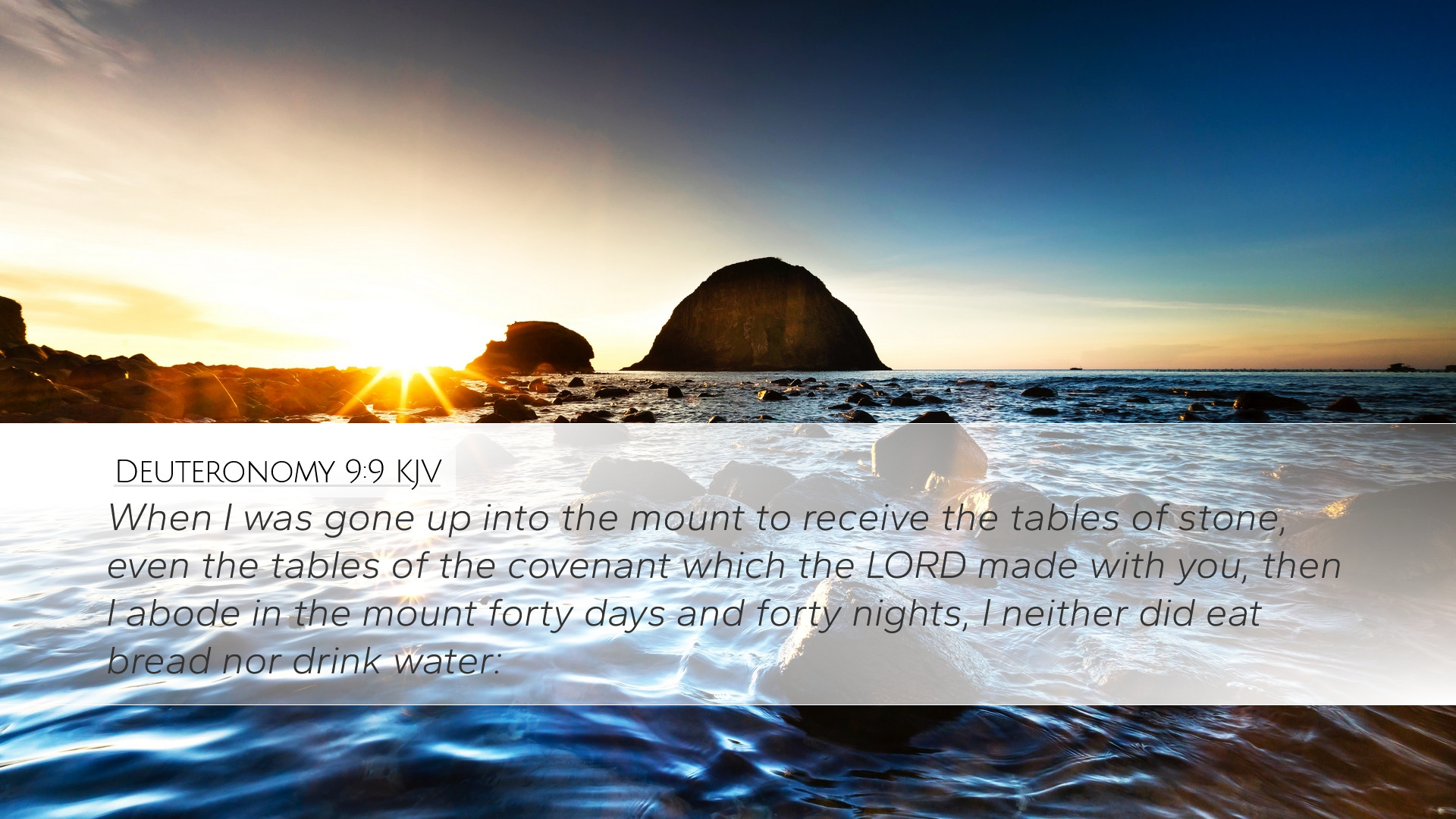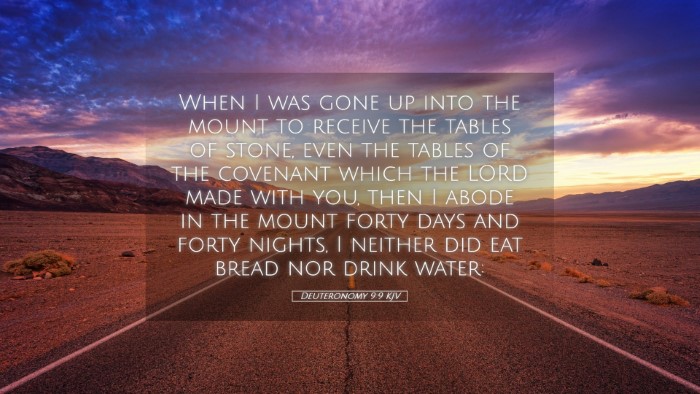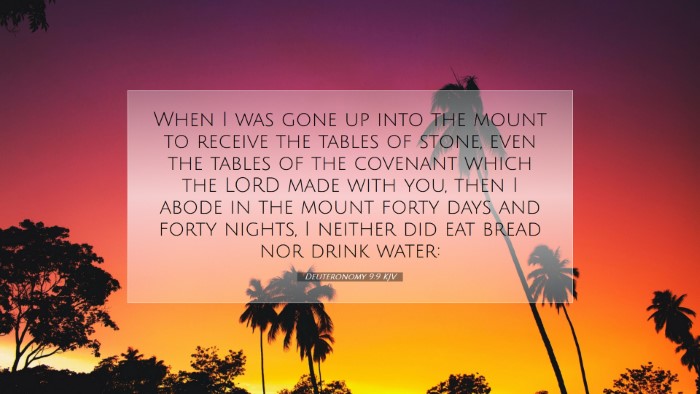Commentary on Deuteronomy 9:9
Verse Context: Deuteronomy 9:9 states, "When I went up into the mountain to receive the tablets of stone, the tablets of the covenant which the LORD made with you, then I stayed on the mountain forty days and forty nights; I neither ate bread nor drank water."
Introduction
This verse recounts a pivotal moment in Israel's history, where Moses ascends Mount Sinai to receive the law of God directly from Him. It highlights the seriousness of Moses' commitment and the gravity of his task, as well as God’s covenant relationship with Israel.
Theological Significance
In this passage, we see strong themes of divine revelation, covenant relationship, and human responsibility. The forty days that Moses spent on the mountain illustrate not only his devotion but also God's desire to communicate His laws and commands clearly to His people.
- Covenant Relationship: This verse emphasizes God's faithfulness to His covenant with Israel. It was during these forty days that the tablets representing the Ten Commandments were given, showcasing the moral framework by which Israel was to live.
- Divine Revelation: Moses receiving the tablets symbolizes God’s initiative in revealing His will to humanity. These laws were not arbitrary but were a reflection of God's holy character.
Insights from Public Domain Commentaries
Matthew Henry
Henry notes that the duration of Moses' fast illustrates the seriousness of the occasion. He remarks on the necessity of scripture and emphasizes the divine proof that God chose Moses as the mediator of His covenant. Henry asserts that this period signifies not only spiritual discipline but also a preparation for leadership as Moses must return to guide the people in their new covenant obligations.
Albert Barnes
Barnes provides insight into the nature of Moses’ fast, underscoring the spiritual significance of such a commitment. He comments on the need for divine revelation to occur in a context void of physical nourishment, highlighting the supernatural empowerment afforded to Moses during this time. Barnes further elucidates the importance of this encounter, connecting it to the broader narrative of Israel’s journey and reliance on God.
Adam Clarke
Clarke elaborates on the historical aspect of Moses’ experience. He points out that the people of Israel were often forgetful of their covenantal obligations, and this moment serves as a stark reminder of the importance of their commitment to God. He also reflects on the prophetic nature of this event, indicating how Moses’ experience foreshadows Christ’s fulfillment of the law, pointing to a deeper spiritual understanding of obedience and divine promise.
Practical Applications for Pastors and Theologians
- Fasting and Prayer: The discipline demonstrated by Moses in abstaining from food and water can serve as a model for contemporary spiritual renewal. It highlights the importance of seeking God with undistracted devotion.
- Value of God’s Word: This verse underscores the significance of scripture in the life of the believer. Pastors can encourage their congregations to prioritize God’s Word as foundational for spiritual growth and understanding.
- Leadership and Counseling: Recognizing the gravity of spiritual leadership, this text can guide pastors in fostering a culture of godliness and covenant commitment within their congregations. They need to model the seriousness of their responsibilities as leaders called to shepherd God’s people.
Conclusion
Deuteronomy 9:9 serves as a profound reminder of the nature of God’s covenant with His people, the seriousness of divine revelation, and the commitment required from those appointed to lead others in faith. The insights from public domain commentaries deepen our understanding and offer practical wisdom for today’s believers.


